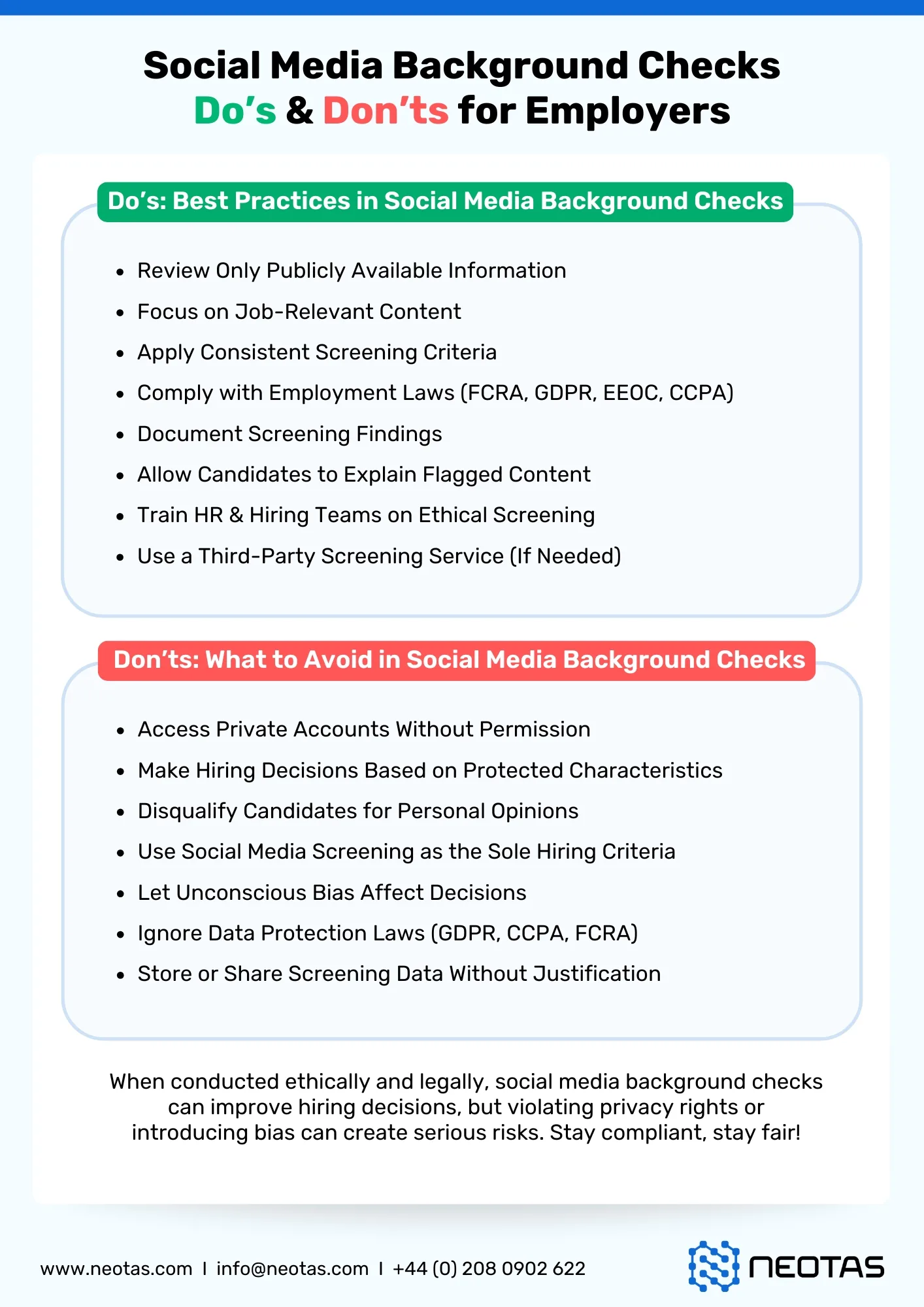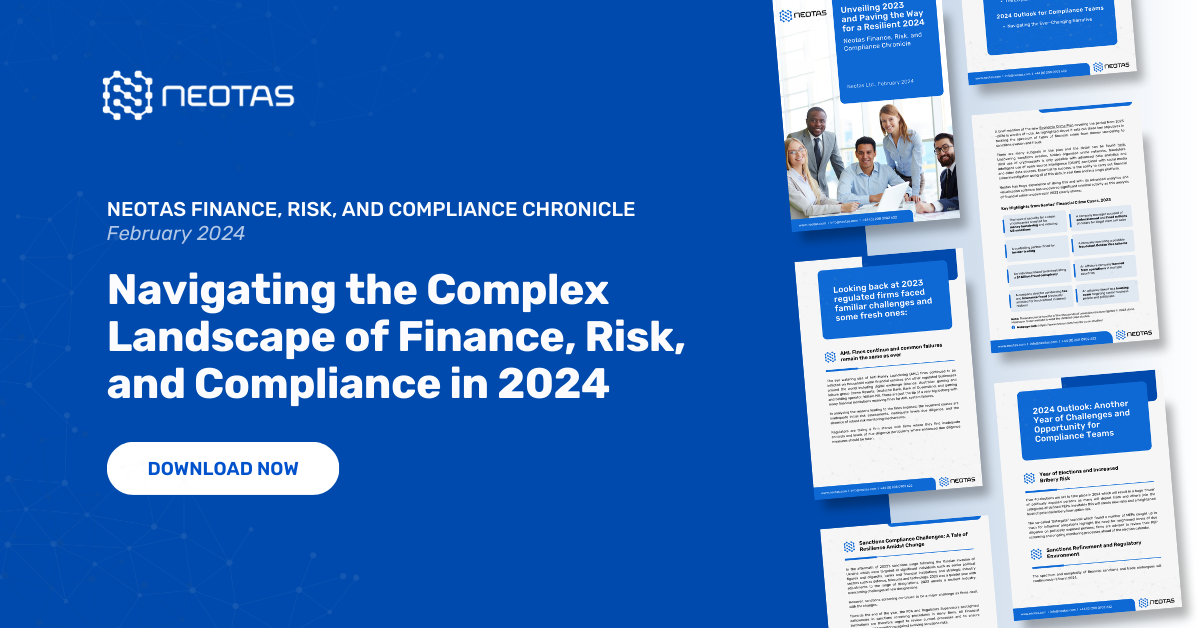Online Reputation Screening
Avoid the cost of a bad hire with online reputation screening
Online reputation screening has become an essential component of the hiring process. It helps employers gain a comprehensive understanding of potential hires beyond what is presented in resumes and interviews. Using the full breadth and power of online reputation screening, we help companies make the right hire and open a healthy dialogue with employees about their behaviour online.
What is online reputation screening?
Online reputation screening is a pre-employment background check that scans a candidate’s full digital footprint, including social media background screening. Using publicly available data, we conduct OSINT-powered background checks to reveal the true character and behaviours of a prospective hire beyond a CV or traditional database checks.
Do’s and Don’ts of Online Reputation Screening
Do’s
- Apply Social Media Policy Equitably: Implement your organisation’s social media policy consistently for both new hires and current employees. Allow new hires the opportunity for coaching and the chance to delete old posts that may not reflect their current behaviour or attitudes. This approach promotes fairness and gives candidates a chance to align with your company’s values.
- Use Accredited Third-Party Providers: Engage an accredited third-party provider that adheres to relevant screening standards, such as POSS from AFODD. These providers are equipped to conduct thorough and unbiased checks, ensuring that the process is professional and compliant with legal standards.
- Include Positive Flags: When conducting online reputation screening, it is crucial to consider both positive and negative indicators. A balanced view helps in recognising a candidate’s strengths and achievements alongside any potential risks.
- Consistent and Structured Screening: Conduct online reputation screening as part of a consistent and structured background screening programme. Avoid ad hoc screenings; ensure that every candidate undergoes the same level of scrutiny to maintain fairness and consistency in your hiring process.
- Inform and Obtain Consent from Candidates: Always inform candidates that open-source checks will be part of the screening process and obtain their explicit consent. Transparency in your screening practices fosters trust and ensures candidates are aware of what to expect.
- Focus on Employment-Related Risks: Prioritise identifying employment-related risks, such as violent behaviour, sexism, hate speech, and discriminatory behaviour. These factors can significantly impact workplace safety and culture, making them critical to assess during the screening process.
Don’ts
- Avoid Internal Social Media Checks: Do not conduct social media checks internally. This practice can introduce discriminatory bias and violate privacy standards. Internal checks are prone to subjectivity and can inadvertently lead to unfair hiring decisions.
- Don’t Focus Solely on Negatives: Avoid concentrating exclusively on negative findings during the screening process. A balanced view that includes positive attributes and achievements provides a more comprehensive understanding of the candidate.
- Don’t Lose Context: Maintain context when reviewing potential business risks related to employment. Understand the broader circumstances surrounding any flagged behaviour to avoid misinterpretation and ensure a fair assessment.
- Don’t Rely on Candidates to Direct the Search: Candidates may have multiple aliases online, and relying on them to direct where to look can lead to incomplete or biased information. Use thorough and systematic search methods to uncover all relevant information.
- Exclude Protected Characteristics: Ensure that any reports generated from the screening process do not include protected characteristics such as race, religion, gender, sexual orientation, or age. This practice is essential to prevent discrimination and uphold ethical standards in hiring.
Implementing these do’s and don’ts will help you navigate the complexities of online reputation screening effectively, ensuring a fair, legal, and comprehensive evaluation of potential hires.
Ensuring your organisation follows the rules above could lower your employment risks and help you avoid the cost of a bad hire.
We are an accredited provider of online reputation screening and adhere to the POSS standards as laid out by AFODD. We help organisations recruit with confidence and avoid bad hires by flagging employment related business risks.
Schedule a call with our team today to discuss your social media screening needs, or build a no-obligation estimate using our pricing tool.
Social Media Background Checks Do’s & Don’ts for Employers

Neotas Social Media Background Checks and Social Media Screening
At Neotas, We understand the importance of conducting thorough and compliant Social Media Screening Checks, and our team of experts is dedicated to ensuring that the process is safe and reliable. Receive accurate and up-to-date information while complying with all relevant regulations, including GDPR and FCRA. Our advanced OSINT technology and human intelligence allow us to uncover valuable insights that traditional checks may miss.
Schedule a call today!
We highlight behavioural risks identified across social media profiles and the wider internet. Neotas supplements the background screening process. Learn more about how we can help you conduct social media screening and background checks in a safe and compliant manner.
Related Case Studies on Social Media Screening
- Online Screening Uncovers Explicit Content Before Onboarding A Senior Candidate
- Online Reputation Screening Of A Senior Manager Reveals Internal Confidentiality Threat
- Identifying Difficult And Dangerous Senior Managers through Digital Screening
- Name Change Hides Involvement With Fraudulent Activity
- Management Due Diligence Reveals Abusive CEO
Related Content on Social Media Screening, Background Checks, and Social Media Background Check
- OSINT Background Check | What Makes Neotas Different?
- Social Media Background Checks For Education Industry
- Social Media Check For Teachers
- Social Media check for Lawyers and other legal professionals
- Social Media Check for doctors and healthcare specialists
- Social Media Check for Police Officers
- How Social Media Screening Benefits Our Clients
- AI-Based Social Media Checks Without Human Intervention
- Avoid the cost of a bad hire with online reputation screening
- The Truth About Social Media Screening And GDPR
- How GDPR and FCRA Apply to Social Media Background Checks — The Do’s and Don’ts of Social Media Background Checks for Employers
- Regulatory Compliance in Digital Screening: International view of the emerging Challenges and Opportunities
- Social Media Screening Webinar — Vero Screening X Neotas
- Pre-Employment Background Checks and Social Media Screening – What NOT To Do
- Online Reputation Screening Uncovers Piracy & Data Leak History For Candidate



 Financial Crime Compliance Trends 2024
Financial Crime Compliance Trends 2024












